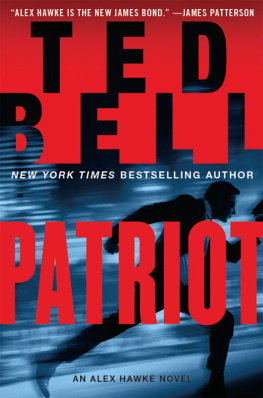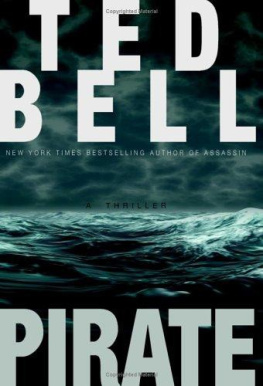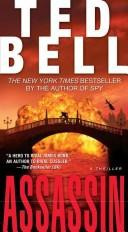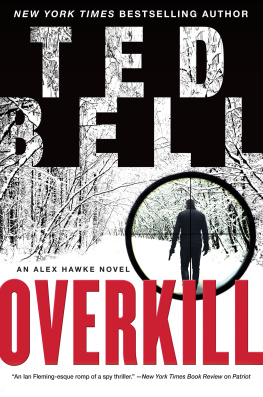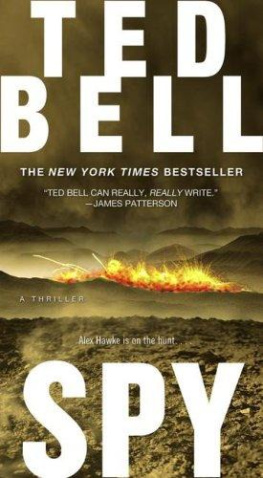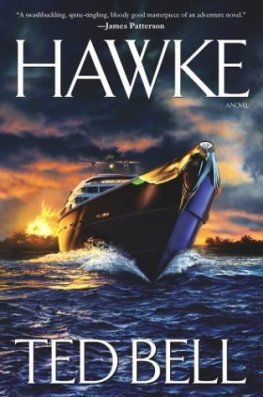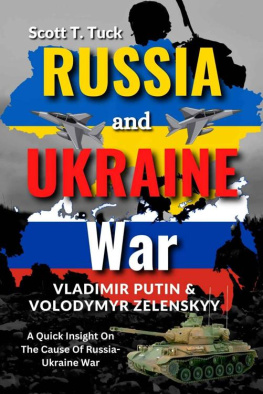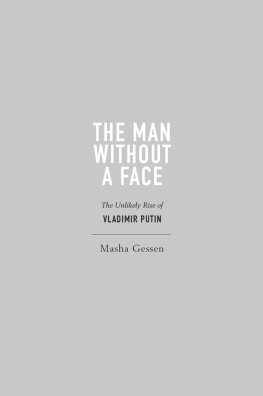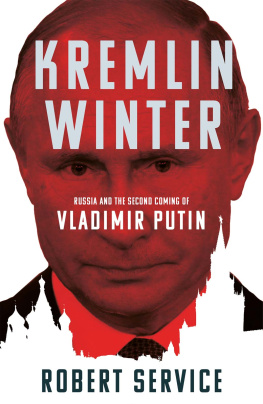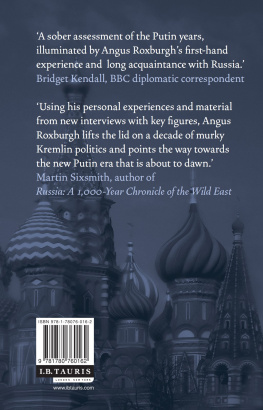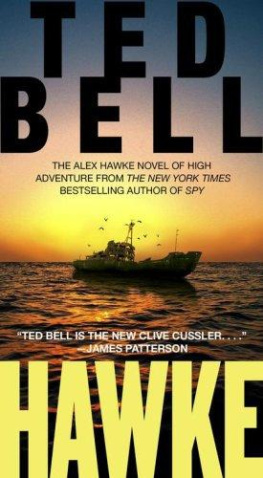May 2012
T he sixth-richest man in England ducked his head.
Pure instinct, it was. A tight formation of four Russian MiG-35s suddenly came screaming out of the blinding sun, thundering directly over Lord Alexander Hawkes Royal Navy watch cap. Silver wings flashing, thrusters howling, the fighter jets quickly shed altitude and skimmed over his position, their squat air brakes down for landing.
What the hell? Alex Hawke muttered to himself. The British intelligence officer was looking straight up as four fighter jets thundered not a hundred feet over his head! MiG-35s in bloody Cuba? Hed have to alert his superiors at MI6 London straightaway.
These MiG fighters were the most radical thing aloft these days; their mere presence here on the island of Cuba confirmed one of Hawkes worst suspicions about his mission: the Russians were no longer fooling around playing, the unconvincing role of advisors to the aging Castro brothers. Despite Cubas impending and highly problematic detente with America, the Muscovites had clearly returned to this island paradise to stay. And they meant business.
The plain and simple fact was that his imminent mission, if successful, would soon bring about a head-on political collision between Britain, America, and Russia. The true facts about Cubas double-dealing would soon flare into stark relief, both in the espionage community and on front pages of newspapers around the world. Welcome to sunny Cuba! Welcome to Planet Tinderbox.
And welcome to realpolitik 2012, Hawke thought to himself.
His four-man stick, or assassination team, and their Cuban guide were crouched in the heavy tangle of verdant jungle encroaching on the airfield. His current position was a scant hundred yards or so from the wide white airstrip. In the recent past, hed noted on his mental pad, all the cracks in the cheap concrete had been patched, crisscrossed with slapdash splashes of black tar, and the uneven surface mostly cleared of choking weeds and overgrowth.
This very long tactical runway had been chopped into the top of the mountain by the Soviets more than a half century earlier, and it certainly looked its age. One famous legacy the Russians had left behind on the island, seriously crappy concrete.
One after another, the fighter planes scorched the far end of the runway. Puffs of bluish-white smoke spurted from the blistered tyres as, with jets howling, the four aircraft landed in sequence. They then taxied in single file to the far boundary of the field. Maneuvering adroitly, the Russian fighter pilots nested wing to wing in the shadows of a few rusty Quonset hangars overarched with climbing vines. An antiquated control tower, also built by the bloody Sovs during a brief warm spell in the Cold War, provided little in the way of shade.
Commander Hawke motioned to his squad as he rose to his feet, squinting against the high hard dazzle of the sky. Move out, the Englishman said softly, and he and his men melted back into the protective cover of the dense jungle canopy encroaching on the field. He wanted to get closer to that tower. The MiGs were interesting, but they were not what hed come all the way from Britain to see.
Ten minutes and a few hundred yards later the commandos had relocated; they were now nearly in spitting distance of yet another Russian airplane, albeit one vastly less sophisticated than the four gleaming MiGs. The first new arrival, having landed a scant few minutes ahead of its fighter escort, was now parked on the tarmac, broiling under the intense Caribbean sun.
The nearby control tower, almost completely enwreathed in cascading flowering vines, loomed above the airplane but provided no shade at all. The fact that all the tower windows were either shattered or completely missing and that there were no controllers present up there seemed to be of little concern to the five Russian pilots recently arrived.
Hawke raised the Zeiss binoculars to his eyes and studied this aviation relic from another century. Unlike the four silver MiG 35s, this was a very old number indeed. It was a dilapidated twin-engine Ilyushin 12 transport, at once a venerable and veritable blast from the past. Hawke caught a sudden glimpse of garish color out of the corner of his eye and quickly shifted his focus left.
A vintage Cadillac limo, painted a ripe old shade of lavender, now rolled to a stop a few feet from the starboard wingtip of the IL 12. A small aluminum ladder was hung down from the opened cabin door aft of the wing. One of the uniformed crew, looking very much like a yachtsman in white trousers and a blue blazer, appeared at the aircraft hatchway.
This chap, clearly DGI, the Cuban secret service unit under the control of the KGB, was shielding his eyes from the fierce sunshine and carrying a serious submachine gun. He climbed down the ladder, circled the faded and rusting limo, and bent to examine the drivers paperwork. Apparently finding everything in order, the armed steward called up to another man still aboard the airplane. A big chap in full jungle camo was now standing in the opening in the fuselage. Hawke smiled. He knew the Russian army officer by the nickname given him by his German father. But he had made his real reputation fighting rebels in Chechnya: a savage butcher.
Der Wolf.
The man climbed down the steps to the tarmac with a good deal of athleticism, Hawke noticed. He held a heavy leather suitcase in his hand, but he handled it as if it were a spy novel hed been reading on the flight. He was a big, bald man, with masses of bunched muscle around his neck and shoulders. His shirtsleeves were rolled up to the elbows, revealing powerful forearms. The whole gristly package came with a right bullet of a head, too, gleaming with sweat.
Hawke zoomed in on the face, on the hooded dark and bushy-browed eyes of the arriving passenger.
He took a good long look at the fellow and then handed the glasses to his old friend, an exNavy SEAL and former New York Jet, a human mountain from West 129th Street in Harlem known by the name of Stokely Jones Jr. A much-decorated counterterrorist for hire, he was oft described by Alex Hawke as about the size of your average armoire.
Its him, Stoke, Hawke said. Ivanov.
Stokely Jones took a quick peek and confirmed Hawkes opinion. There was no doubt. The man theyd come to Cuba to kill had arrived right on schedule.
THAT NIGHT IT TURNED COLD in the mountains. From his vantage point in the jungle peaks of the Sierra Maestra, Commander Hawke could see the misty lights of Cabo Cruz, a small fishing village on the northeastern coast of Cuba, on the coastline far below. To the east, a few more such villages were visible from his vantage point. Dim clusters of light scattered along the black coastline, as if tiny gold coins had been flung out by some giant hand.
These were the only signs of civilization visible in the darkness from the mountainside campsite.
Hawke pulled his collar up as he looked seaward. The wind was up, heralding a cold front moving north. He knew from CIA ops briefings in Miami that a tropical storm was brewing up to the south of Cuba. It was headed this way, a cold wind out of Jamaica, drawn northward by warmer Caribbean waters. Hawke swore softly under his breath. Sometimes inclement weather worked in your favor; and sometimes it decidedly did not.
Among the five men living at the makeshift campsite, the mood around the deliberately low-burning campfire was one of quiet, confident expectation. The tiny village of Cabo Cruz, just below them, was their target tonight. In that village was the man the commando squad been tracking for the last forty-eight hours, ever since the Ilyushin 12 had touched down at the secret airstrip.

